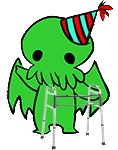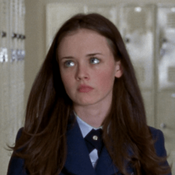|
We are in desperate need of a new Non-Fiction Thread, and I believe this is it. Non-fiction is the branch of literature comprising works of narrative prose dealing with or offering opinions or conjectures upon facts and reality, including biography, history, and the essay (opposed to fiction and distinguished from poetry and drama). But I don't have to tell you guys that, we are all smart adults here. Lets get to the good stuff, this thread is for discussing and recommending Non-Fiction books. This is a broad category so all are welcome. Some of my personal favorite non-fiction authors/books are: The Black Swan: Second Edition: The Impact of the Highly Improbable: With a new section: "On Robustness and Fragility" - Nassim Nicholas Taleb (really anything by him) Moneyball: The Art of Winning an Unfair Game - Michael Lewis (again anything by him) The Devil in the White City: Murder, Magic, and Madness at the Fair That Changed America - Erik Larson (again anything by him) Under the Banner of Heaven: A Story of Violent Faith - Jon Krakauer (duh) There are numerous others: Bad Blood: Secrets and Lies in a Silicon Valley Startup The Smartest Guys in the Room: The Amazing Rise and Scandalous Fall of Enron Too Big to Fail: The Inside Story of How Wall Street and Washington Fought to Save the Financial System--and Themselves Seriously, I can't name all of them. Please feel free to recommend some, post what you like, seriously, ANYTHING Non-Fiction! Anything you wanted added to the OP please let me know.
|
|
|
|

|
| # ? Apr 25, 2024 07:04 |
|
Flaggy posted:Seriously, I can't name all of them. Please feel free to recommend some, post what you like, seriously, ANYTHING Non-Fiction! Let me recommend Salt, Cod, and The Basque History of the World by Mark Kurlansky. Kurlansky is a journalist with very readable and engaging prose and looking at broad world history through a particular lens is always interesting. I got distracted and haven't checked back in for a decade or so, but he's clearly written more: http://www.markkurlansky.com/books.aspx ulmont fucked around with this message at 23:13 on Aug 20, 2020 |
|
|
|
Things That Are by Amy Leach Swimming Studies by Leanne Shapton The Outrun by Amy Liptrot The Crying Book by Heather Christle Bluets by Maggie Nelson Lex Neville fucked around with this message at 19:52 on Aug 20, 2020 |
|
|
|
Also anything by Mary Roach: "Stiff: The Curious Lives of Human Cadavers (2003), Spook: Science Tackles the Afterlife (2005) (published in some markets as Six Feet Over: Adventures in the Afterlife), Bonk: The Curious Coupling of Science and Sex (2008), Packing for Mars: The Curious Science of Life in the Void (2010), My Planet: Finding Humor in the Oddest Places, Gulp: Adventures on the Alimentary Canal (2013), and Grunt: The Curious Science of Humans at War" http://maryroach.net/books-news.html
|
|
|
|
Oliver Sacks is another amazing non-fiction writer. just absolutely incredible. https://www.oliversacks.com/ Migraine Awakenings A Leg to Stand On The Man Who Mistook His Wife for a Hat Seeing Voices: A Journey Into the World of the Deaf An Anthropologist on Mars The Island of the Colorblind Uncle Tungsten: Memories of a Chemical Boyhood Musicophilia: Tales of Music and the Brain The Mind's Eye Hallucinations On the Move: A Life (2015) (second autobiography) Gratitude (2015) (published posthumously) The River of Consciousness Everything in Its Place: First Loves and Last Tales (2019)
|
|
|
|
Here's some non-fiction I've enjoyed recently: Nisa by Marjorie Shostak Part anthropology about the Kalahari Khoisan, part autobiography of Nisa, a Khoisan woman Shostak interviewed extensively. Full of interesting information, but the real draw is Nisa's character. She's a brattish, greedy child and a bloody-minded woman who does exactly what she wants. If you like it, you'll probably enjoy The Harmless People by Elizabeth Warran Marshall, who visited the Kalahari in the 1950s and 1980s. Novels in Three Lines by Félix Fénéon This is a collection of very brief summaries of news stories, printed in French newspapers about 1906. They really are three lines long, and they're not quite novels, but are intense, funny, and dark experiences. Influence by Robert Cialdini Somewhere between a business book, pop psychology, and self-help, about the different ways to persuade people to do what you want them to. Light, and not always reliable, but interesting. Times Square Red, Times Square Blue by Samuel R. Delany Two essays, one about going to porn cinemas for sex, the other about the ways people interact with people from their social class and other classes, a much more abstract take on the same material.
|
|
|
|
A really good read that came out this year: Uncanny Valley: A Memoir by Anna Wiener - Exposing the seamy underbelly of Silicon Valley, this memoir recounts Anna Wiener’s experience as an ambitious Millennial who abandoned a publishing career in New York City to pursue a lucrative life in San Francisco during the peak of the tech boom. Based on her time working at three startups over the course of four years, Uncanny Valley offers a warts-and-all look at Wiener’s life in the Bay Area, surrounded by egotistical tech bros backed by millions of dollars in funding. The book also explains how once Wiener witnessed the sinister side of tech, she began to view her own skills in a different light, allowing her to abandon her high-paying job and find more meaningful work.
|
|
|
|
John D'Agata's What Happens There is about Levi Presley, a kid in Las Vegas who jumped from the Stratosphere Hotel. It's about the suicide rate in Las Vegas, how inadequate the suicide prevention is there, the writer's intuition of a sadness behind the glitz, and, finally, Presley's last day: staying late at a party, maybe smoking weed, losing a Tae Kwon Do tournament, arguing with his parents, and going to the tower. Several years after being commissioned by Harper's, the original essay was published in an annotated version as The Lifespan of a Fact, with a credit to Jim Fingal. You might want to read the essay before you read on. Harper's rejected the essay because of factual inaccuracies; The Believer picked it up a couple of years later, and Jim Fingal was the intern assigned to fact-check it. The Lifespan of a Fact is D'Agata's original essay (not quite the same as the final version), with commentary surrounding a few lines of essay per page. Fingal checks facts and notes things D'Agata made up, bent, or simplified for the essay – there’s plenty of these, some minor, some impossible to verify, some pretty big – and D’Agata defends himself. Occasionally they argue. The book is billed as a meditation on the relationship between “truth” and “accuracy”, conveying D’Agata’s vision of the slippery nature of existence and the fictionality of fact. It’s not awfully good at this, though, because while Fingal is nitpicking, D’Agata’s defences are mostly pretty weak. He’ll argue that something sounds better, when the difference is tiny, and some of his assertions make him sound like an idiot. Having green eyes makes you more likely to kill yourself? No word in Latin for suicide? Not only is that wrong, but the next page describes sixth-century cardinals voting to outlaw suicide… Sometimes he calls things acclaimed and then admits he’s the one who did it, or makes contradictory arguments. At one point he defends using a Geocities website as a source for a weird legend about the origin of Tae Kwon Do. A lot of the time his defence is that he wants to present his view of things, which wasn’t great in 2003 but has aged, er, poorly. “Las Vegas is messed up” is one thing; what if his feeling was “weed makes you kill yourself”, or Tae Kwon Do does, or that Presley’s parents were to blame? And what’s the point of using facts if you don’t care if they’re accurate? D'Agata says he doesn't call his work non-fiction, by the way. It’s not that great an essay either, I think. It’s not that well written and rather clichéd and exploitative in the way it uses D’Agata’s and Presley’s real lives. There seems to be another layer to the book. The discussions seem rather stylised, and the pair are happy to publish the book together and offer joint thanks to their editor. How fictionalised is this layer of the book? I’m not sure, but if I’m right, it’s a better argument for bending the truth than most of what D’Agata says.
|
|
|
|
Recently read: Never Enough: The Neuroscience and Experience of Addiction. The author, Judith Grisel, was an alcoholic and a druggie in her teens to early 20s, after which she turned her life around and got a Ph.D in psychology. She's a professor at Brucknell univrsity. The book is both an excellent first-person experience of drug use and contains an explanation of the addiction process that I found truly profound and which I think should be taught to kids in high school. Also I'm looking forward to Jan Swafford's biography of Mozart due out in December, titled Mozart: The Reign of Love. I enjoyed his 2014 bio of LvB ("Beethoven: Anguish and Triumph"). Already pre-bought the audiobook of the Mozart bio.  IbrahimSom fucked around with this message at 12:02 on Oct 15, 2020 |
|
|
|
So I know fuckall about classical music history but I like Mahler and Shostakovich and poo poo and I'd like to know fuckmore about it. I've heard that The Rest Is Noise (Ross, 2008) is an goode booke about 20th Century music: is it though?
|
|
|
|
Yes, its real cool. Taruskin's massive series on classical music is also rad, and the two volumes on 20th century music may also meet your needs.
|
|
|
|
Bumping this thread because it is good to learn and I like non-fiction books. Things I have read recently and not too recently: Surprise, Kill, Vanish by Anne Jacobson. A book about a fun and light subject, the history of assassinations that the CIA has had a part in. It starts in WW2, talking about the covert action groups that eventually became the CIA. From there it goes through the decades, detailing some of the various clandestine actions that were taken against all sorts of people, groups, regimes, and so on. It's interesting stuff, though obviously it's only able to say so much because the vast majority of this stuff will never be reported on. Narconomics: How To Run a Drug Cartel by Tom Wainright. This was a very interesting book. It's about how different the economics and logistics of running large criminal enterprises can be compared to how they are portrayed in movies and on TV. There are humorously mundane examples of common business problems, like human resource and customer service issues, and shows how the problems got solved in ways that were very much customer-friendly when based on the fiction we consume, we'd have expected a group of assassins instead. Hiroshima by John Hersey Hiroshima follows 6 people who survived the bombing of Hiroshima, taking us from the start of their mornings, through the explosion and the following day, and then their experiences as more months go by. This is one of the first examples of "New Journalism", where fiction story-telling techniques are used to report the story. It is a quick read, and I would say an important book that should be at the top of everybody's list. Tumble fucked around with this message at 18:48 on May 14, 2022 |
|
|
|
Bumping this because I'm in the middle of Run Towards the Danger by Sarah Polley and totally captivated by it. She was a child actor who grew up to write and direct, and she reckons with the effects of it beautifully. She's able to see her memories from multiple perspectives, balancing them to find different kinds of truth. An excerpt about her experience with Terry Gilliam was recently published in The Guardian and I was surprised by how she neither lets him off the hook, nor paints him as a complete villain. I'm not sure I would have the presence of mind to do the same.
|
|
|
|
I’m halfway through Rising Tide by John M. Barry and it’s great. It’s about the 1927 Mississippi River flood, but goes back a lot further than that to civil war era stuff and the personalities that tried to shape/control the river. Also just finished The Jakarta Method by Vincent Bevins about the anti communist crusades in Asia and global south, and how the US supported them. Depressing but worth reading.
|
|
|
|

|
| # ? Apr 25, 2024 07:04 |
|
I have just started How to Change Your Mind: What the New Science of Psychedelics Teaches Us about Consciousness, Dying, Addiction, Depression, and Transcendence by Michael Pollan. If you haven't heard of it, this book is a journalistic accounting of the history and use of psychedelics (focusing on LSD, DMT, and psylocibin--MDMA being a different mechanism doesn't qualify but is also covered somewhat) focusing especially on its new resurgence as a tool in psychology and therapeutics. Also, apparently while researching the book the author, a journo, became so intrigued he became a participant, so its part documentary in the third person, partially in first. So far (50 odd pages in) its wonderfully written and pulls you along, and even though we are still in the early stages of scene setting by covering the discovery and early use of psychedelics in therapy up to being listed class I and the early cracks in the walls to present day experimentation I am hooked.
|
|
|
|



















